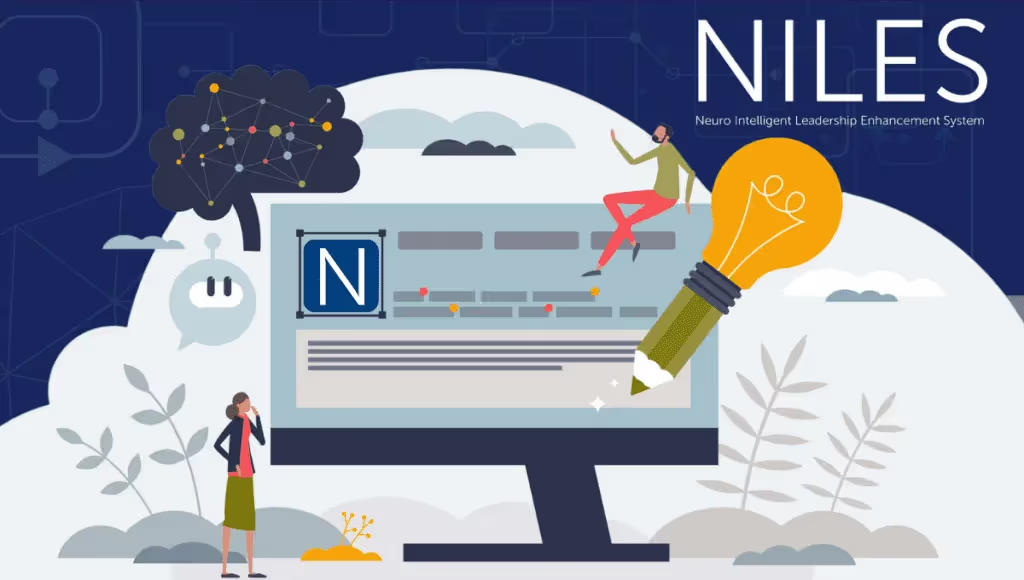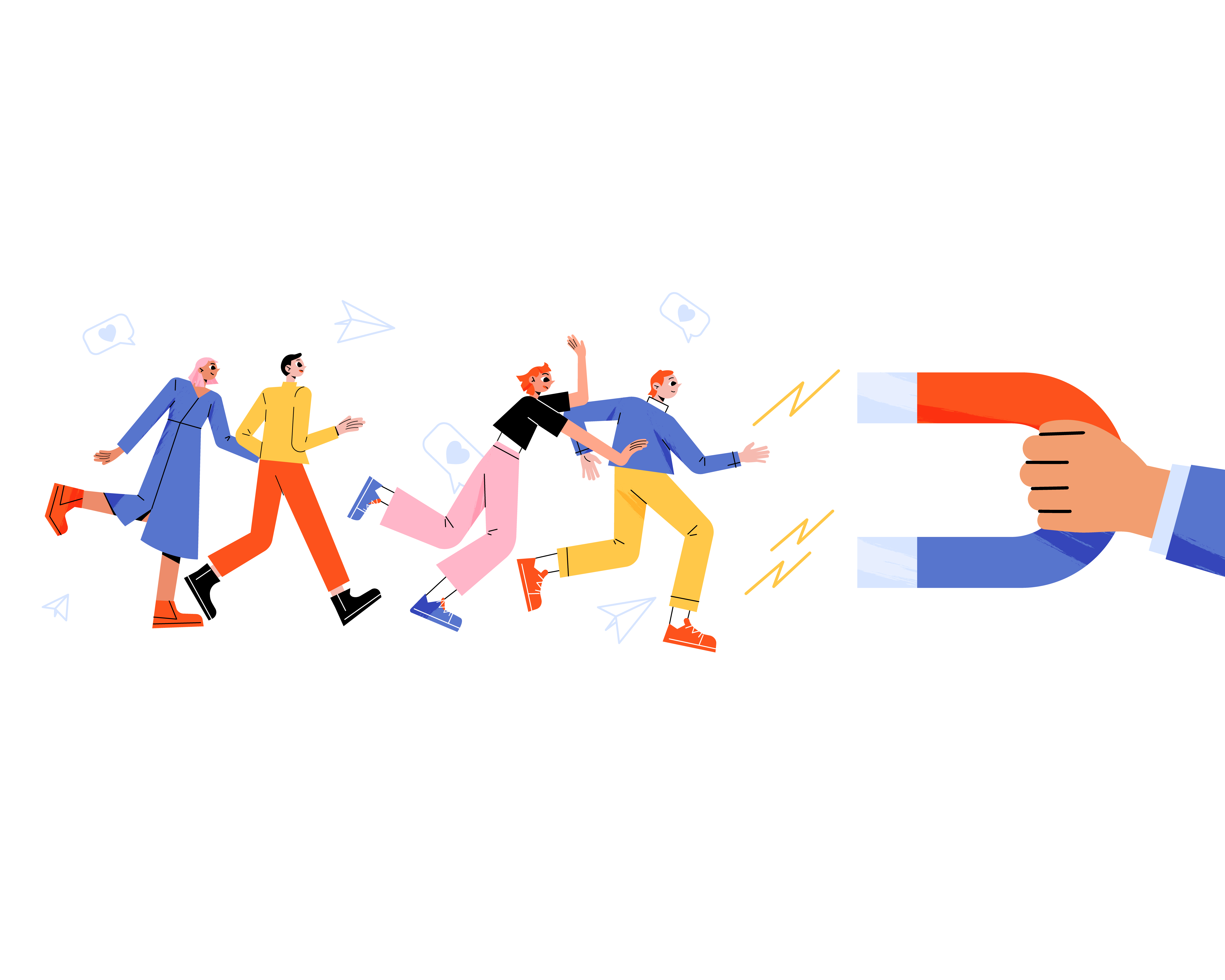Key Insights:• Artificial intelligence can help leaders hone the human skills that have become so important in the workplace.• NLI has developed a chatbot called NILES that can serve as a leadership coach in your pocket.• NILES is designed to help with real-time management decisions, strategizing, and more.
Over the past decade, there’s been a shift in the way organizations think about skills. What was once a clear division between “hard” and “soft” skills has blurred. Today, those so-called soft skills — empathy, growth mindset, psychological safety — are more commonly thought of as “human” skills: the capabilities every leader needs to inspire their teams, build strong relationships, and deliver high performance.
An open question is whether artificial intelligence will support or impede these efforts. Will AI help leaders build human skills, or will AI hurt their ability to connect with others? NLI believes the only path forward is for AI to make leaders more human. Such was the inspiration behind our new AI chatbot NILES, the Neuro Intelligent Leadership Enhancement System.
We’ve written before about the inspiration for NILES. Here, we’ll unpack what NILES can do across six capabilities to make leaders more effective in their roles — and, in the process, make their organizations more human.
What NILES can do
NILES’ basic function is to teach leaders elements of brain-friendly leadership through responses drawing on The SCARF® Model, growth mindset, and more. But beyond that, NILES supports leaders across a variety of responsibilities, ranging from simple tips on managing employees to high-level strategic counsel.
Provide just-in-time leadership advice
Unlike other chatbots that give leaders generic advice or solutions that are unsupported by science, NILES is trained to give specific advice that can be applied immediately.
For instance, if a manager feels their weekly check-ins with a direct report haven’t been effective in boosting performance, they can ask NILES for advice on how to improve the meeting — whether it’s five days or 5 minutes ahead of time. NILES will respond with concrete steps that include an explanation of why the approach is brain-friendly and likely to succeed.
Supplement coaching
NILES is unique in that it can serve as an ongoing resource beyond one-off situations. Human coaches will always be valuable; however, NILES can serve as a cost-effective supplement that leaders can rely on at all hours, whenever they need it.
A leader may recognize he struggles to create a culture of speaking up. As a result, his meetings are dreadfully quiet. This leader can use NILES as a coach before each meeting to strategize and then afterward to debrief what went well, what didn’t, and what he might consider trying next time.
Supply new ideas
With a little prompting, AI can generate far more ideas — and far more quickly — than humans can. If leaders want help coming up with a variety of options, examples, metaphors, or stories, they can give NILES the context and ask it to generate possibilities from which the leader can choose.
Let’s say a leader has just put together a new team. She asks NILES to provide some ideas for team-building during their first couple of meetings. The options NILES suggests all have merits, but based on the leader’s personality, the makeup of the team, and the culture she wants to create, the leader can choose the team-building exercise she considers most appropriate.
Aid in decision-making
In the prior example, the leader engaged in divergent thinking: going broad with a range of options. NILES can also help leaders narrow their thinking from a number of options to just one or two in a process known as convergent thinking. Given the parameters of a situation, NILES can reason through a strategy and help the leader see the pros and cons of one decision over another.
For instance, if a leader can only promote one employee to a coveted spot but has two candidates to choose from, the leader can give NILES the terms of the dilemma and allow the AI tool to weigh in based on the science of culture, teams, and performance. The decision still rests with the leader, but here, NILES has acted as an executive coach to consult on an important personnel issue.
Accelerate onboarding
NILES can be customized to an organization’s culture, values, leadership principles, and HR policies and tools, making the onboarding process more efficient.
If an organization highly values innovation, for example, company leadership can customize its version of NILES to highlight for new hires the ways the company has innovated in the past. It can also lean more toward creativity in its answers and prioritize collaboration as a potential solution. When new hires ask NILES questions, it will be clear innovation is a guiding principle of the company.
Reinforce training
As employees go through certain training programs, NILES can be customized to echo what they have learned. When leaders have a specific question based on the program, NILES will recognize the question as if it, too, went through the program.
If we picture a manager who wants to improve the quality of his conversations with direct reports, there may come a time when he forgets the three key points he learned in his training. Instead of messaging his boss or a busy colleague, he asks NILES.
Since NILES is programmed with the same curriculum the leader went through, it quickly reminds the leader of the three points, serving as a kind of in-house wiki.
Just the beginning
One of the great benefits of public-facing AI like NILES is that people can customize how they use the tools. These six use cases are just examples of what NILES can do. We know folks will find new, clever ways to extract even more value from NILES.
We’re also building future versions of NILES that allow it to blend even more seamlessly into leaders’ daily work. Soon, NILES will be able to set smart reminders for when leaders start their day and then customize its recommendations to prepare for certain meetings on the person’s calendar.
At its best, AI makes everything that’s difficult about leaders’ jobs easier to do, and it helps them do it in less time — and with fewer headaches — while building the human skills that have become so necessary. That is the current and future promise of NILES.Apply for early access to NILES here.






.avif)

